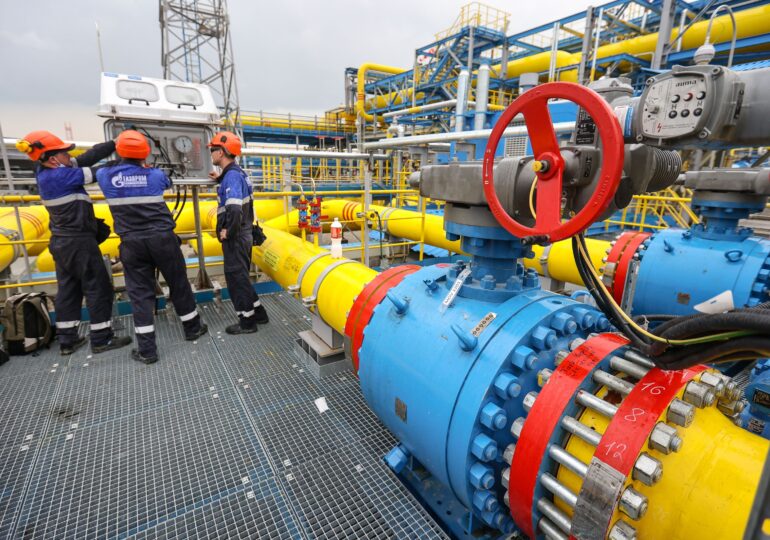Energy ministers from the European Union have agreed on a common position regarding plans to ban all gas deliveries from Russia by the end of 2027.
The decision comes as the bloc aims to definitively end its dependence on energy sourced from Moscow.
A majority of officials gathered on Monday in Luxembourg supported the ban, which starts by prohibiting Russian deliveries under existing short-term contracts until mid-June, with an exception for landlocked countries such as Hungary and Slovakia, as reported by the European Council.
Another ban on long-term agreements is set to be implemented 18 months later.
The regulation is a central element of the EU's REPowerEU roadmap to end the dependence on Russian energy, following Russia's transformation of gas supplies into weapons and repeated gas supply disruptions to the EU, with significant effects on the European energy market.
What the regulation entails
The proposed regulation introduces a gradual, legally binding ban on both pipeline gas imports and liquefied natural gas (LNG) from Russia, with a total ban to be enforced from January 1, 2028.
The Council agreement maintains this deadline, thus signaling an ambitious willingness to achieve a gradual phase-out. This will contribute to the overall objective of establishing a resilient and independent EU energy market, while ensuring EU supply security.
"An energy-independent Europe is a stronger and safer Europe. Although we have made great efforts and insisted on removing Russian gas and oil from Europe in recent years, we have not yet succeeded.
Therefore, it is crucial that the Danish Presidency has obtained overwhelming support from European Energy Ministers for legislation that will definitively ban Russian gas from entering the EU," said Lars Aagaard, Denmark's Minister of Climate and Energy.
Transition phase for existing contracts
The Council confirmed that imports of Russian gas will be banned starting January 1, 2026, while maintaining a transition period for existing contracts.
In particular, short-term contracts concluded before June 17, 2025, can continue until June 17, 2026, while long-term contracts can last until January 1, 2028.
Changes to existing contracts will only be allowed for strictly defined operational purposes and cannot lead to volume increases, except for specific flexibilities for landlocked member states affected by recent changes in supply routes.
Customs and authorization procedures
Compared to the Commission's proposal, the Council has simplified customs obligations by setting less stringent documentation requirements and procedures for natural gas imports from outside Russia.
In such cases, these must be provided to authorization authorities only before the gas enters the EU customs territory, while more information is required for Russian gas imports during the transition phase (including the date and duration of the supply contract, contracted quantities, and any contract modifications).
The Council included the requirement for both categories of gas imports to undergo a prior authorization regime to ensure the ban will function in practice.
To reduce administrative burden, member states agreed that this prior authorization procedure will not apply to imports from countries meeting a set of criteria outlined in the proposed regulation.
This ensures that only the most relevant imports for verification will be subject to prior authorization. According to the agreed text, the Council tasks the Commission with drafting the list of exempted countries within five days of the regulation coming into force.
Additional monitoring and notification mechanisms have also been introduced to prevent Russian gas from entering the EU under transit procedures (i.e., gas passing through the EU on its way to another destination without entering the EU market).

